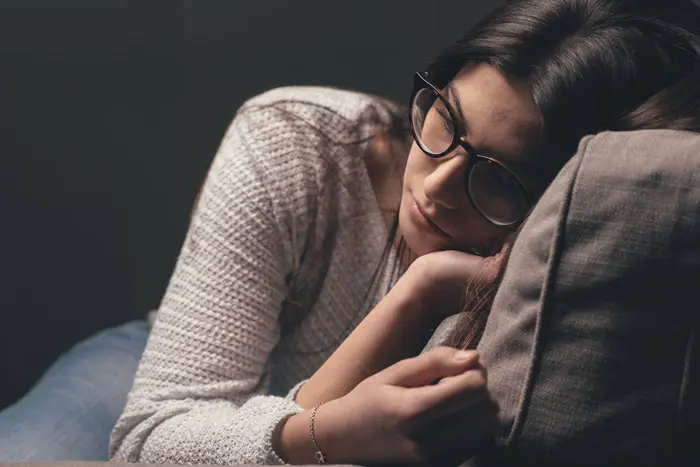Separation Anxiety: When Your Partner Goes to Rehab
Home Alone
 Your partner’s substance abuse got way out of hand. Fortunately, they recognized their issue and sought out treatment. Now, you’re left alone at home for a few weeks while they are living at the treatment center.
Your partner’s substance abuse got way out of hand. Fortunately, they recognized their issue and sought out treatment. Now, you’re left alone at home for a few weeks while they are living at the treatment center.
While part of you may feel relieved at knowing your partner is in a safe place, you may also feel anxious, worried, or perhaps even panicked at the thought of their absence. You may have questions like:
- What if they dump me while they’re in treatment?
- What if they cheat on me while they’re in recovery?
- What if they come back and things aren’t the same?
- If I leave them, will they relapse?
These are all valid questions. They also indicate a level of separation anxiety and codependency that might take some time, self-care, and professional help to overcome.
Separation Anxiety: What is it, and do I have it?
Separation anxiety is often seen in children and, sometimes, with pets and their owners. For adults, this type of anxiety manifests in the fear that something horrible will happen to our loved ones when we’re not with them. Adults who have separation anxiety with their romantic partners usually experience the following symptoms:
- Irrational and persistent fears that a loved one, or they themselves, will be kidnapped, pass away, or experience a violent trauma in the absence of their partner
- Inability to physically separate or be physically far from the partner while they’re in a recovery program
- Insomnia or sleeping disorders stemming from the above fears or the general absence of the partner
- Anxiety, depression, or panic attacks due to the occurrence of any of the aforementioned symptoms
- Diarrhea, headaches, and/or aches and pains
If you identify with any of these symptoms, you are not alone. One of the best treatments for separation anxiety is cognitive behavioral therapy (CBT). We can help you learn how to manage your anxiety while you:
- Reestablish a basis of trust between yourself and your partner
- Learn various techniques for confronting conflict and seeing different perspectives.
- Let go of shame, blame, guilt, and the habit of avoiding responsibility.
- Learn about ways to support yourself and your ability to move forward.
- Learn to create an environment that fosters your health.
Codependency: What does it mean?
No one likes being told that they’re dependent on somebody else. However, when it comes to our well-being, our success, and our future, we need to consider the possibility that our relationship with someone in recovery may be codependent.
If you’re in a codependent relationship, you often find yourself doing the following:
- Finding it difficult to make decisions within or about the relationship
- Finding it impossible to identify your own emotions and extremely difficult to communicate well
- Being unable to set and maintain healthy boundaries
- Experiencing low self- esteem and not being able to trust in your own ability to be alone or do things on your own
- Feeling more pride from your partner’s approval of your body, actions, or life than from your own sense of self
- Obsessing or constantly thinking of being abandoned by your partner, and therefore constantly putting your partner’s needs before yours
Additionally, it’s very common to see a correlation between codependency and substance abuse. Often, codependent partners enable their counterparts or even end up using drugs or alcohol alongside them.
More About Codependency
One of the best remedies for codependency is counseling for yourself and space from your partner. The specific counseling recommended for codependency is also available within our Family Program.
Now, to return to those initial questions about being dumped, being cheated on, etc. The answer to all of those questions is this: you don’t know. Anything that your partner chooses to do is outside of your control. All you can do is take care of yourself and trust that everything will work out in a way that is best for each of you.
Know that recovery will change your partner and your relationship in ways that you cannot predict. You might find it very helpful during this time to join a group like Al-Anon, which is created for family and friends of people suffering or in recovery from addiction. Al-Anon will help you learn more about how addiction affects partnerships, how to best support your partner, and how to best support yourself.
Seabrook Is Ready to Help
All of these concepts can be reinforced with our counseling and support at Seabrook. We hope to hear from you with any questions, concerns, or doubts you may have.




